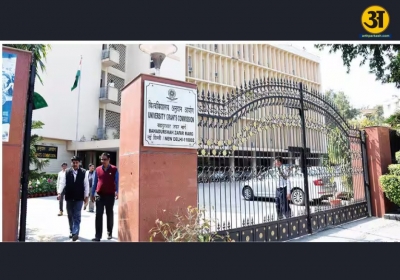
Singapore acts against foreign influence in race-based groups
Singapore passes law to curb foreign interference in race-based organisations
Singapore has passed a new law to protect its race-based clans and business organizations from foreign interference. The law, known as the Maintenance of Racial Harmony Bill, aims to ensure that foreign influence does not harm the country’s racial harmony, which is vital in the multicultural city-state.
The bill, passed by Singapore’s parliament on Tuesday, requires race-based organizations to disclose any foreign donations, affiliations with foreign groups, and their leadership details. These organizations will also be required to provide transparency about their funding sources.
New powers for the Government
The new law gives the government more authority to monitor and regulate the activities of these groups. If any organization accepts donations from foreign sources, the government can impose a restraining order to stop them from accepting such funds. It can also prohibit anonymous donations or demand that the organization return or dispose of any foreign donations they have received.
Furthermore, the law allows the home affairs minister to issue orders against individuals or organizations involved in spreading content that may harm racial harmony in Singapore. The government acknowledges that it may be difficult to enforce these rules outside Singapore, but it signals the nation’s commitment to maintaining its racial balance.
While the bill was supported by the opposition party, some lawmakers raised concerns about its potential consequences. Opposition lawmaker Gerald Giam expressed concerns about the broad definition of "foreign affiliation," fearing it might unintentionally restrict local associations with historical ties to foreign groups that have helped preserve Singapore’s cultural heritage.
ALSO READ: Netanyahu travels to Washington to reignite ties with Trump
ALSO READ: NASA’s Sunita Williams reacts as Trump assigns Elon Musk to rescue stranded astronauts
The Singaporean government has emphasized that the bill is not a solution to all racial issues but is an important step in safeguarding the country’s racial harmony.
Protection against Foreign influence
The law comes as Singapore seeks to protect its diverse racial communities, which include 74% Chinese, 13.6% Malay, and 9% Indian residents, with the remaining 3.3% classified as others. The government’s goal is to prevent any foreign country or group from influencing or manipulating these communities in ways that could disrupt Singapore’s social balance.
This bill is part of a broader effort by the government to maintain social stability by controlling foreign influence in sensitive areas like race relations. As a global hub for trade and finance, Singapore faces unique challenges in balancing international relations with the preservation of its domestic harmony.
The necessity of such laws became clearer after incidents involving individuals with foreign ties who have made statements or taken actions that could disrupt Singapore’s racial harmony. One such example is Chan Man Ping Philip, a businessman who was designated a "politically significant person" last year for activities that promoted the interests of an unspecified foreign country. Chan, a naturalized Singaporean citizen, had attended the Chinese People’s Political Consultative Conference in Beijing and made comments about forming an alliance with the overseas Chinese community to "tell the China story well."
Chan’s actions were seen as problematic by the Singaporean government, as they raised concerns about external influence on the local Chinese community. He had previously served as the president of the Hong Kong Singapore Business Association, an organization with links to both Hong Kong and Singapore.
Law’s broader implications
While the bill has been largely supported by the government, it has also sparked debate over its potential implications for Singapore’s international relationships. Critics worry that the law could affect the country’s image as an open and welcoming hub for business and trade. Additionally, some worry about the law’s impact on Singapore’s diverse range of associations, particularly those with historical ties to overseas groups.
Despite these concerns, the government has stated that the law is necessary to ensure that foreign influence does not disrupt Singapore’s carefully maintained racial balance. By regulating foreign donations and affiliations, the law aims to prevent external parties from using Singapore’s race-based organizations as tools for their own interests.
The new law marks an important step in Singapore’s efforts to protect its racial harmony from foreign interference. By ensuring that race-based organizations are transparent about their foreign ties and donations, the government hopes to maintain the stability of its multicultural society. The law also gives the government the power to stop organizations or individuals from engaging in activities that could harm the nation’s social fabric. Despite concerns from opposition lawmakers, the law is expected to play a key role in ensuring that Singapore’s racial harmony remains intact, even in the face of increasing global influence.





